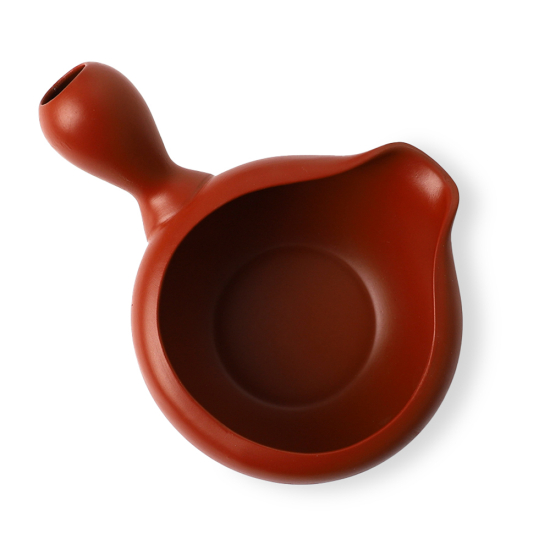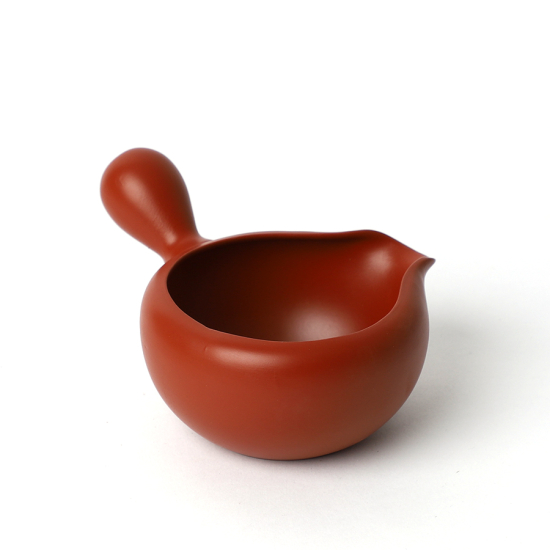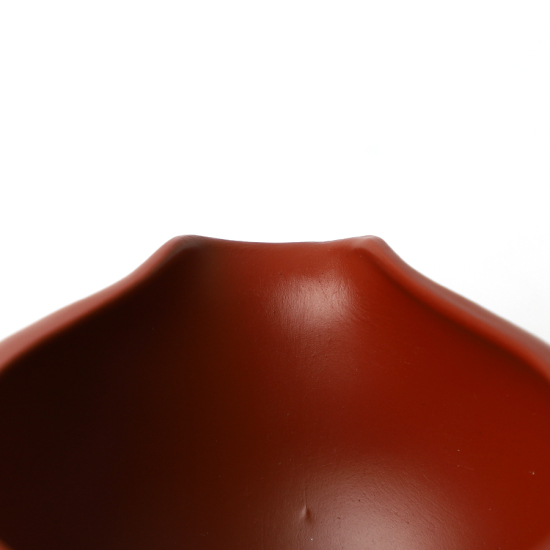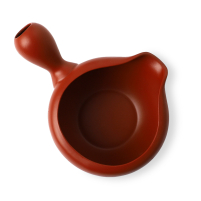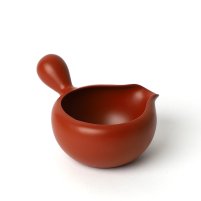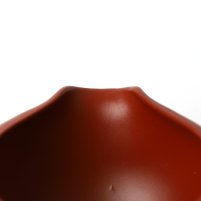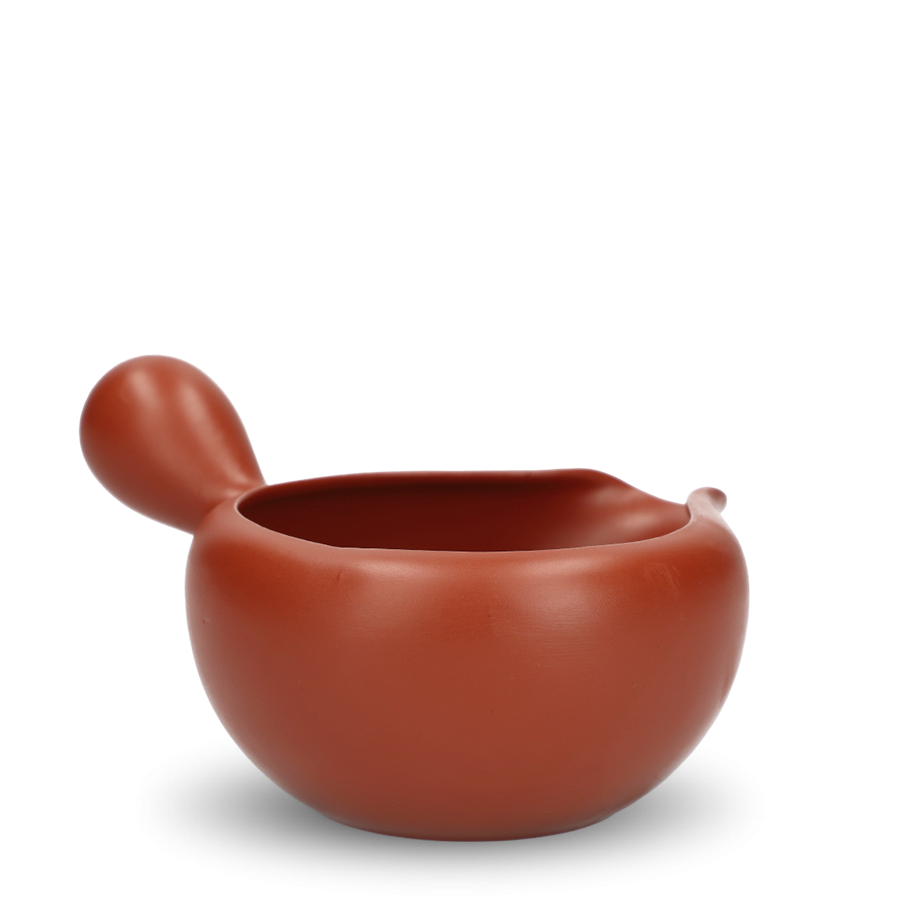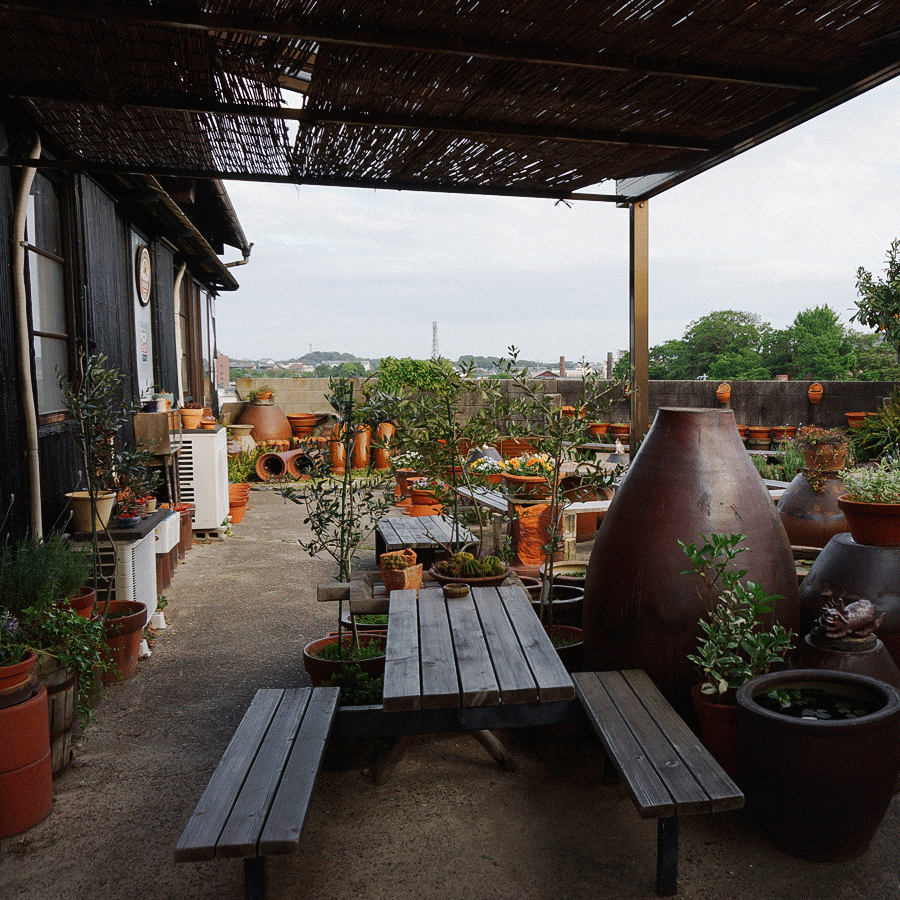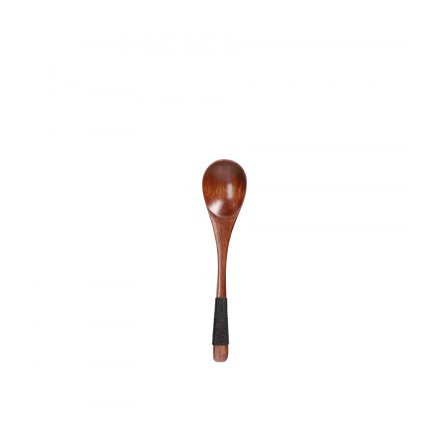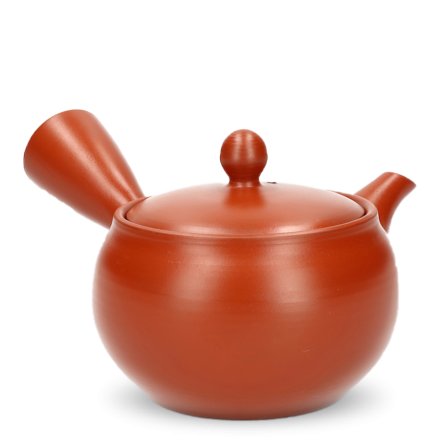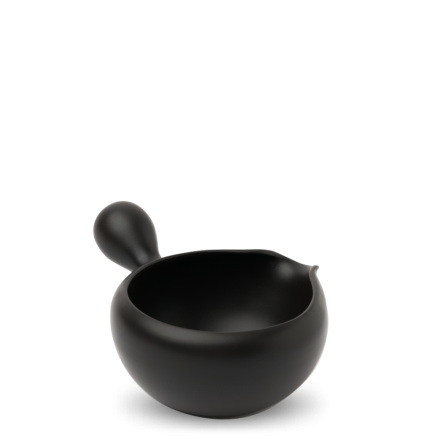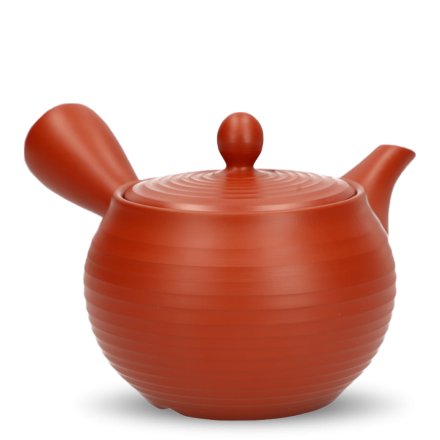As with all unglazed ceramics, wash with warm water and a soft cloth only. Do not use washing-up liquid or put in the dishwasher. Pat dry with a towel and/or leave to air dry naturally. Hard water may cause limescale deposits to develop, in which case rinse the Yuzamashi with soft bottled water, then wipe with a soft cloth.
Yuzamashi
Tokoname Red
Studio Gyokko
SKU
4121
Large, red Tokoname-yaki Yuzamashi cooling bowl with side handle for preparing Japanese green teas brewed at lower temperatures, such as Sencha, Gyokuro and Kabusecha. Perfect for pairing with a matching Tokoname Kyusu teapot.
| Product | Yuzamashi water cooler, red |
| Origin | Tokoname, Aichi, Japan |
| Maker | Studio Gyokkō |
| Volume | 350ml |
| Dimensions | Ø11cm x 6cm |
| Weight | 245g |
| Material | Ceramic |
| Finish | Unglazed (Yakishime 焼き締め ) |
| Production | Ikomi (鋳込み) casting |
| Packaging | Cardboard box |
Each piece is handmade and unique, therefore colour, volume, dimensions and weight may vary slightly
In stock



